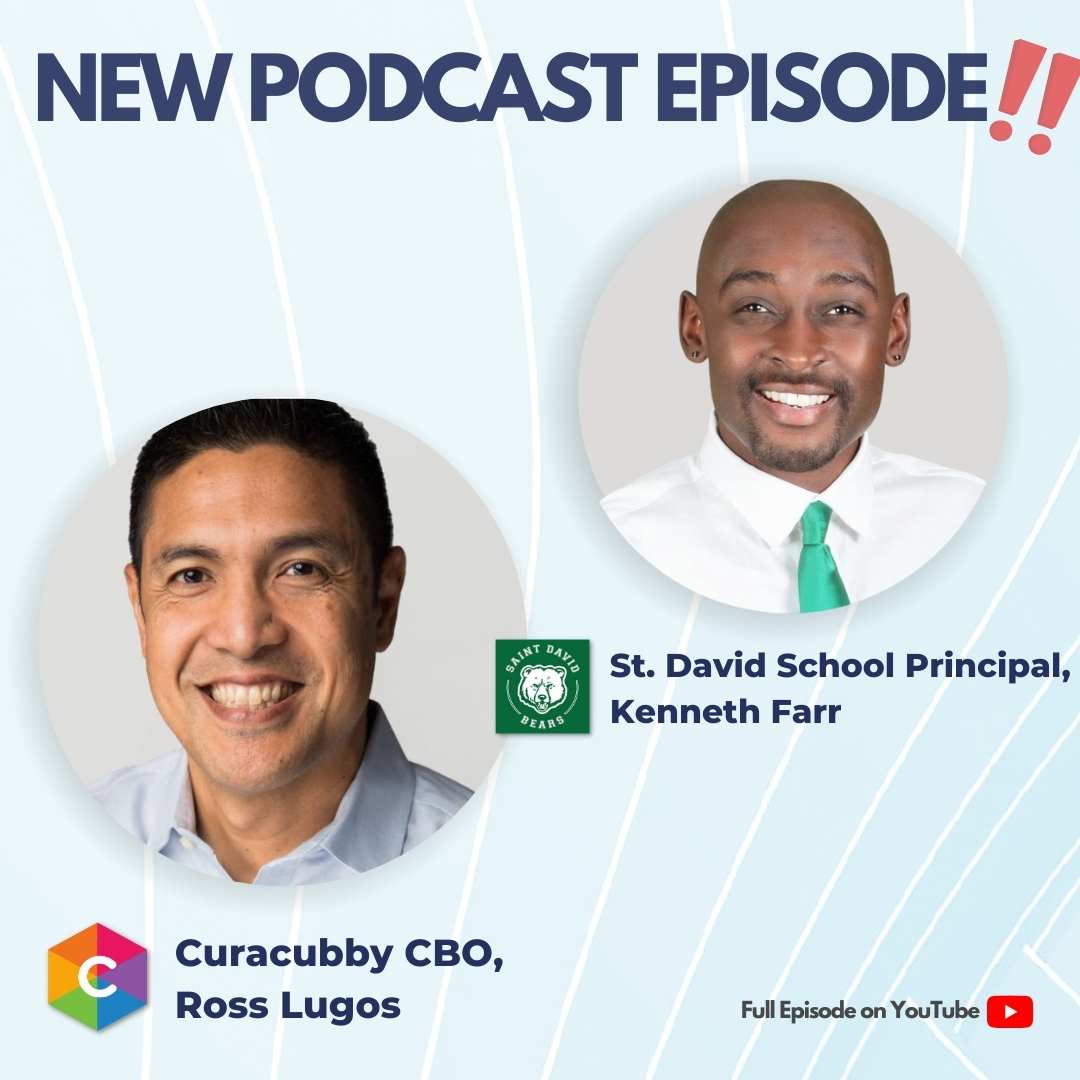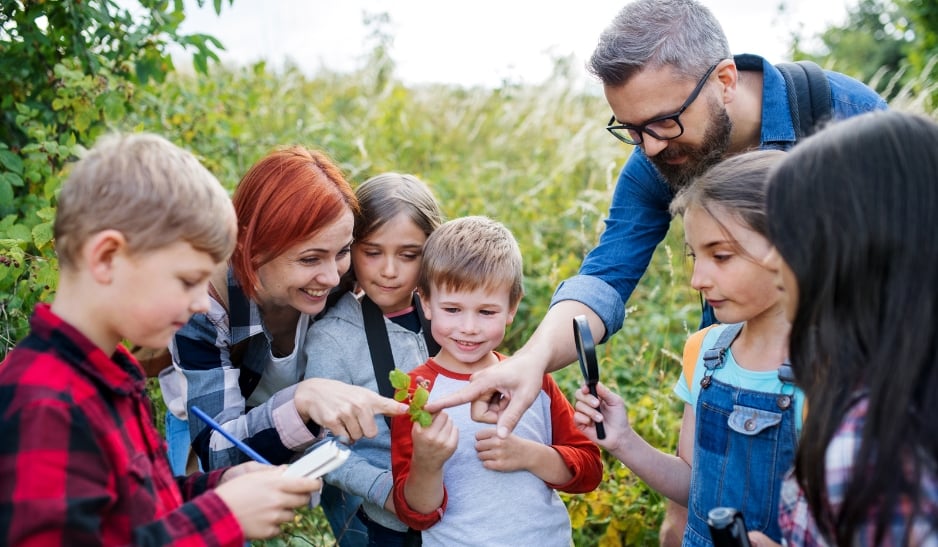Beyond the Classroom: 7 Unique Out-of-School Curriculum Ideas

Beyond the Classroom: 7 Unique Out-of-School Curriculum Ideas
Education extends far beyond the confines of a traditional classroom. While classroom learning forms the foundation of knowledge, it is equally important to engage students through out-of-school curriculum activities that foster their holistic development. These unique experiences provide students with hands-on opportunities, creative outlets, and community involvement that go beyond textbooks and worksheets. In this article, we will explore seven distinctive out-of-school curriculum ideas that ignite curiosity, promote skill-building, and cultivate a love for lifelong learning.
From exploring nature's classroom to embracing cultural immersion, these ideas offer students a chance to broaden their horizons and acquire valuable life skills. So, let's dive into the realm of out-of-school curriculum and discover the extraordinary possibilities that lie beyond the classroom walls.
7 Unique Out-of-School Curriculum Ideas
These activities include exploring nature's classroom, nurturing artistic expression and creativity, promoting physical fitness and sportsmanship, encouraging community service and social responsibility, fostering entrepreneurship and business skills, inspiring STEM exploration and innovation, and embracing cultural immersion and global awareness. By incorporating these unique ideas into students' learning journeys, educators and parents can provide a comprehensive and well-rounded educational experience that cultivates curiosity, skills, and a broader understanding of the world.
1. Exploring Nature's Classroom
-
Outdoor Field Trips and Experiential Learning
Nothing compares to the real-world experience of exploring nature firsthand. Outdoor field trips allow students to connect with the environment, observe wildlife, and learn about ecosystems. Whether it's a visit to a national park, a nature reserve, or a local farm, these excursions offer a hands-on approach to science education. -
Gardening and Sustainable Practices
Encouraging students to engage in gardening not only teaches them about the life cycle of plants but also instills a sense of responsibility towards the environment. By growing their own food and practicing sustainable gardening techniques, students develop an appreciation for nature and learn the importance of sustainable living. -
Environmental Conservation Clubs and Activities
To foster a sense of environmental stewardship, schools can establish clubs or organize activities centered around environmental conservation. These initiatives may include clean-up drives, recycling programs, or even tree-planting campaigns. By actively participating in these activities, students become advocates for positive change in their communities.
2. Artistic Expression and Creativity
-
Theater and Drama Clubs
Theater and drama clubs provide an excellent platform for students to showcase their creativity and enhance their communication skills. Through acting, improvisation, and scriptwriting, students develop self-confidence, teamwork, and the ability to express themselves effectively. -
Creative Writing and Poetry Groups
Writing is a form of self-expression that allows students to channel their thoughts and emotions into words. Creative writing and poetry groups can provide a supportive environment for students to explore their writing skills, share their work, and receive constructive feedback. This fosters creativity, enhances communication, and nurtures a love for literature.
3. Physical Fitness and Sportsmanship
-
Intramural Sports Leagues
Engaging students in intramural sports leagues encourages physical fitness, teamwork, and sportsmanship. These leagues can encompass a variety of sports, from soccer and basketball to volleyball and badminton. By participating in friendly competitions, students not only improve their physical health but also develop crucial life skills such as leadership and resilience. -
Martial Arts and Self-Defense Classes
Martial arts classes provide students with a unique way to improve their physical fitness while also developing self-discipline, respect, and self-defense skills. Whether it's karate, taekwondo, or judo, these classes teach students important values and instill a sense of confidence and self-assurance.

4. Community Service and Social Responsibility
-
Volunteer Programs and Initiatives
Engaging in community service allows students to give back to society and develop empathy and compassion. Schools can collaborate with local organizations to create volunteer programs that cater to different causes, such as assisting the elderly, supporting underprivileged children, or helping with environmental initiatives. Through these experiences, students learn the value of social responsibility and the impact they can make in their communities. -
Fundraising Events and Charity Drives
Organizing fundraising events and charity drives not only raises funds for a worthy cause but also teaches students important organizational and leadership skills. By planning and executing these events, students learn about teamwork, budgeting, marketing, and the power of collective action. -
Youth Leadership Organizations
Youth leadership organizations empower students to become agents of change. These organizations provide platforms for students to voice their opinions, develop leadership skills, and engage in decision-making processes. By participating in such organizations, students learn about democracy, responsibility, and the power of advocacy.
5. Entrepreneurship and Business Skills
-
Young Entrepreneurs' Programs
Introducing entrepreneurship education at a young age can inspire students to think creatively, develop problem-solving skills, and nurture their entrepreneurial spirit. Young entrepreneurs' programs enable students to create and run their own small businesses, teaching them valuable skills such as financial management, marketing, and customer service. -
Mini-Marketplace Projects
Mini-marketplace projects allow students to experience the process of setting up and operating a small business. They can create products or services, develop marketing strategies, and interact with customers. These projects provide hands-on learning opportunities and help students understand the fundamentals of business operations.
6. STEM Exploration and Innovation
-
Robotics and Coding Clubs
In the age of technology, robotics and coding clubs offer students a chance to explore STEM fields in a fun and interactive way. Through building robots and learning programming languages, students develop critical thinking, problem-solving, and teamwork skills. These clubs cultivate an interest in STEM subjects and potentially inspire future innovators. -
Science Fairs and Competitions
Science fairs and competitions provide students with a platform to showcase their scientific knowledge and creativity. These events encourage students to conduct experiments, analyze data, and present their findings. Participating in science fairs and competitions fosters a love for science, research skills, and the ability to think critically. -
Technology-Driven Workshops
Technology-driven workshops introduce students to emerging technologies such as virtual reality, 3D printing, and artificial intelligence. These workshops not only expand students' knowledge but also inspire them to explore the possibilities of technology. By engaging in hands-on activities, students develop skills that are highly relevant in today's digital world.
7. Cultural Immersion and Global Awareness
-
Language Exchange Programs
Language exchange programs provide students with the opportunity to learn a new language and immerse themselves in a different culture. By interacting with native speakers and participating in cultural activities, students gain a broader perspective of the world, develop cross-cultural communication skills, and foster an appreciation for diversity. -
Cultural Festivals and Celebrations
Organizing cultural festivals and celebrations within schools allows students to learn about different traditions, customs, and celebrations from around the world. These events promote cultural awareness, inclusivity, and a sense of unity among students. Through dance, music, art, and food, students embrace diversity and gain a deeper understanding of various cultures. -
International Travel Opportunities
International travel experiences provide students with firsthand exposure to different countries, cultures, and ways of life. Whether through student exchange programs or educational tours, traveling abroad broadens students' horizons, enhances their global awareness, and fosters intercultural understanding.
Conclusion
Engaging students through out-of-school curriculum activities opens up a world of possibilities beyond traditional classroom learning. By exploring nature, nurturing artistic expression, promoting physical fitness, encouraging community service, fostering entrepreneurship, inspiring STEM exploration, and embracing cultural immersion, students gain valuable skills, experiences, and perspectives that contribute to their overall development. As educators, parents, and mentors, let us encourage and support students in exploring these unique out-of-school curriculum ideas, unlocking their potential, and shaping them into well-rounded individuals.
When it comes to running these programs, consider trying out Curacubby. With our customizable modular tools for program registration, payments, and communication, we can streamline your administrative tasks, giving you more time to focus on creating a comprehensive learning experience.









